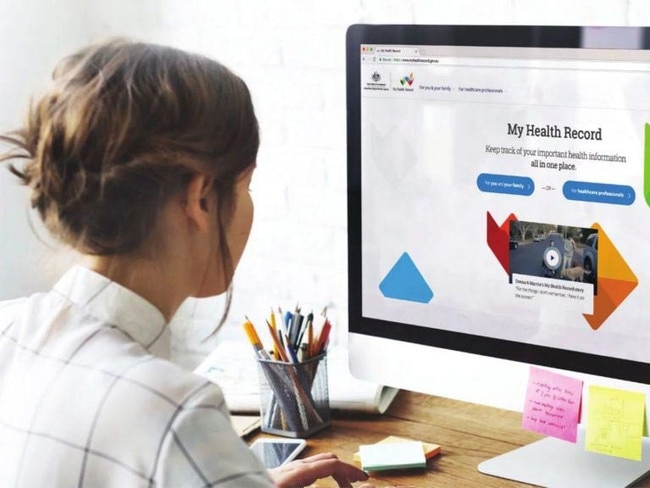Why the $2 billion My Health Record is a flop
Almost a decade after it was launched, doctors are refusing to use My Health Record, the electronic system that has cost taxpayers $2 billion.

Health
Don't miss out on the headlines from Health. Followed categories will be added to My News.
More than eight years after it was launched, doctors are refusing to use the electronic My Health Record that has cost taxpayers over $2 billion.
GPs look at the record — designed to summarise a patient’s key health information — in fewer than one per cent of consults and hospitals use it in just two per cent of cases, the latest data from the Australian Digital Health Agency shows.
Only one in ten medical specialists are registered to use the record and it will be March before every specialist software package can support the record.

Just a quarter of the records have a shared health summary uploaded by a GP, explaining a patient’s medical history.
And, more concerningly, fewer than one per cent of Australians have put access controls on the record to prevent their dentist or podiatrist seeing sensitive health information about any mental health conditions or sexually transmitted diseases, impotence problems or abortions.
Originally doctors refused to use My Health because few people had a record but that excuse died two years ago when nine in 10 Australians had one automatically created for them after failing to opt out of the controversial system.
Australian Medical Association (AMA) vice president Dr Chris Moy said the situation was slowly improving but “it was always going to be a slow burn”.

The failure of doctors to use the record means taxpayers are not benefiting from the health savings it was meant to deliver.
The Australian Digital Health Agency which runs the record had forecast it would help eliminate $172 million in duplicate scans ordered by different doctors each year and save $180 million in duplicate pathology tests.
A further $1.2 billion in hospitalisation associated with medication errors were also meant to be avoided by the record.
“Over the last 12 months it’s been great to see the increases in clinically helpful data in the system and the sharing and viewing by health professionals,” Australian Digital Health Agency CEO Amanda Cattermole said.
However, Dr Moy conceded not enough specialists were using the record.
“Specialists are still the weak spot. There’s no doubt about it. The AMA has a position that this is a serious area that we need to work on,” he said.

Independent Clinical Adviser to the Australian Digital Health Agency, Dr Steve Hambleton, said more and more healthcare workers were realising the practical benefits of digital health. “I want hospitals and specialists to have rapid access to relevant information about my patients when they are caring for them,” he said.
Recent improvements have seen the record feature three key pieces of information – a summary of a patients medications, their scans and their blood tests for the last two years.
Dr Moy said the record had been useful to him on a number of occasions.
A new patient who came in because they were depressed told him they were using no daily medications but when Dr Moy consulted the My Health Record he found the person was taking a blood pressure medication that had depression as a known side effect.
On another occasion a patient who had been interstate was told by a hospital to have a test but was given no paperwork about it. A check of a hospital discharge letter stored on the My Health Record solved the problem, Dr Moy said.




